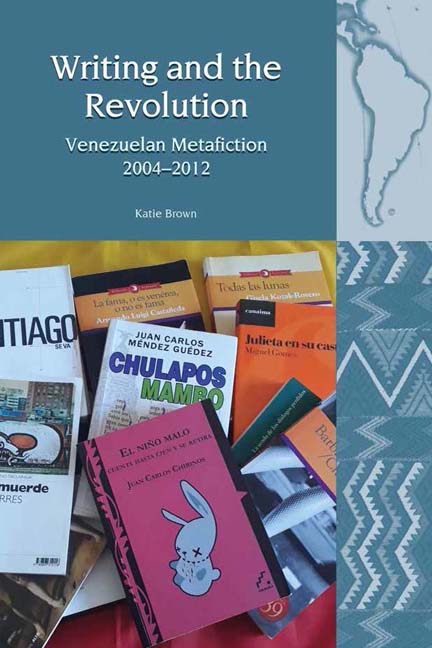2 - Writing and Distinction
Summary
At the heart of the polarisation of the literary field under the Bolivarian Revolution, in the period analysed, was a set of competing value judgements: authors who prioritised aesthetic concerns clashed both with the Bolivarian government, whose priority was inculcating a national, socialist community, and with the demands of the international publishing industry, which judges books on how well they sell or meet the perceived needs of the market. In this context, the writer–protagonists of the novels discussed in this chapter become writer–critics, ‘dialectical figure[s]’, in Mark Currie's (1995, 3) terms, who engage simultaneously in the production and reception of literature. Through their writing, they make judgements about both their own work and other texts. This chapter begins with analysis of how characters in Transilvania unplugged (Sánchez Rugeles, 2011a), Todas las lunas (Kozak Rovero, 2013) and Rating (Barrera Tyszka, 2011) all make judgements about literary quality as a form of distinction. It then considers Armando Luigi Castañeda's fragmentary, disjointed anti-novel La fama, o es venérea, o no es fama (2012) as an example of the tensions between literary ideals and the demands of the international literary market in a context where state publishing no longer offers distinction or support for writing as a profession.
As Pierre Bourdieu (1993, 42) argues, ‘The fundamental stake in literary struggles is the monopoly of the power to consecrate producers or products’. Under the Bolivarian Revolution, institutions put in place during the Punto Fijo period to facilitate, promote and reward literary quality were subsumed into the Bolivarian literary system. The two key examples are the publishing house Monte Ávila and the Rómulo Gallegos literary prize. Monte Ávila was formed in 1968, under the leadership of Simón Alberto Consalvi. Despite belonging to the state, it was run as an autonomous company. Alexis Márquez Rodríguez (1999, 90) claims that the creation of Monte Ávila marked the major turning point in the history of Venezuelan literature. Likened to Mexico's Fondo de Cultura Económica (Nuño, 2014), Monte Ávila's wide editorial offer ranged from works by consecrated authors which had gone out of print, to unpublished and often highly experimental new writers.
- Type
- Chapter
- Information
- Writing and the RevolutionVenezuelan Metafiction 2004-2012, pp. 61 - 80Publisher: Liverpool University PressPrint publication year: 2019

